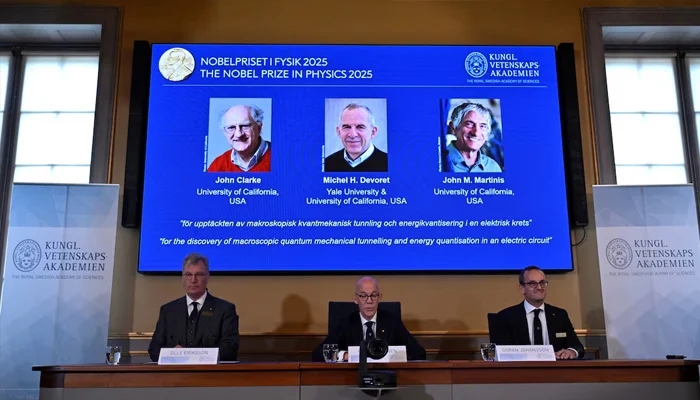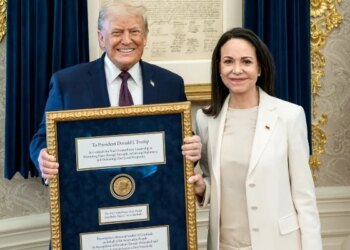Select Language:
Scientists based in the U.S., including John Clarke, Michel Devoret, and John Martinis, received the 2025 Nobel Prize in Physics for their experiments demonstrating quantum physics in action, which has opened doors to advancing future digital technologies.
Clarke expressed his astonishment at the award during a phone interview with the Nobel press team, saying, “I’m completely stunned. I never imagined this would be the basis of a Nobel Prize.” He added, “You’re probably using one of the fundamental things we worked on—your cell phone.”
Quantum Mechanics Continues to Surprise in a Century-Old Field
While quantum behaviors are extensively studied at atomic and subatomic levels, many find them strange and difficult to grasp compared to classical physics, which applies to much larger scales.
Back in the 1980s, the laureates conducted groundbreaking experiments with superconducting electronic circuits, revealing that quantum effects could influence everyday objects under specific conditions.
Olle Eriksson, chair of the Nobel Committee for Physics, remarked, “It’s remarkable how quantum mechanics, a field over a century old, still consistently uncovers new surprises. It’s also the backbone of all digital technology we rely on.”
Quantum technology is now widespread—transistors in microchips are a prime example. The Nobel acknowledgment underscores its importance for next-generation innovations like quantum cryptography, quantum computers, and advanced sensors.
Quantum computers leverage quantum principles to perform highly complex calculations, potentially solving problems in minutes that would take conventional computers millions of years. These advancements hold promise for addressing critical issues such as climate change but also present challenges, including improving chip precision. The commercialization timeline for quantum computing remains uncertain.







